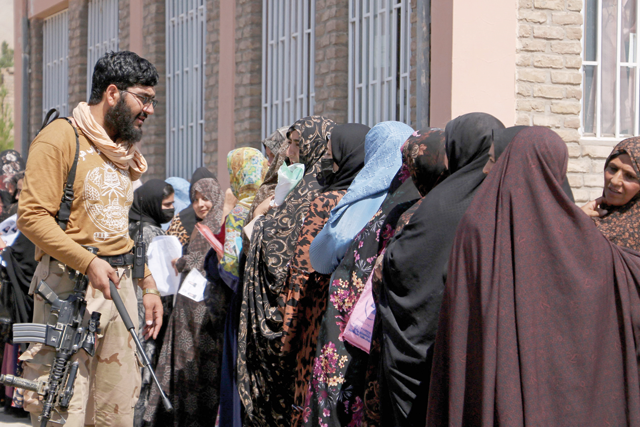KABUL — Rights monitors condemned on Monday a ban on women visiting one of Afghanistan's most popular national parks, the latest curb shutting women out of public life under Taliban government rule.
The Taliban government's morality ministry closed the Band-e-Amir national park to women at the weekend, claiming female visitors were failing to cover up with proper Islamic dress.
The park, 175 kilometres west of Kabul, is renowned for its striking blue lakes surrounded by sweeping cliffs.
The Bamyan province park is a hugely popular spot for domestic tourism and is regularly swarmed with Afghans relaxing at the shore or paddling the waters in rented boats.
Human Rights Watch's Associate Women's Rights Director Heather Barr told AFP the decision to ban women was "cruel in a very intentional way".
"Not content with depriving girls and women of education, employment and free movement, the Taliban also want to take from them parks and sport and now even nature," she said in a separate statement.
"Step-by-step the walls are closing in on women as every home becomes a prison," she said.
The Minister for the Promotion of Virtue and Prevention of Vice Mohammad Khalid Hanafi justified the ban on Saturday on the grounds women were failing to wear hijabs properly.
"We must take action from today. We must prevent the non-observance of hijab," he said during a visit to Bamyan province.
Ministry spokesman Akef Muhajir told AFP local religious leaders requested the temporary closure because women from outside the province were not observing the hijab dress code.
Other national parks in Afghanistan remain open to all, he said.
Since returning to power in August 2021, Taliban authorities have imposed a strict interpretation of Islam, with women bearing the brunt of laws the United Nations has labelled "gender apartheid".
UN Special Rapporteur on human rights in Afghanistan Richard Bennett asked on the social media site X, formerly known as Twitter, on Sunday "why this restriction... is necessary to comply with Sharia and Afghan culture?"
Women and girls have been banned from attending high school and university as well as barred from visiting parks, fairs and gyms in the years since the Taliban authorities returned to power.
They have also mostly been blocked from working for UN agencies or NGOs, with thousands sacked from government jobs or paid to stay at home.
The announcement of the ban on visiting Band-e-Amir elicited posts from women on social media with pictures of trips to the park and expressing hopes they will return one day.
